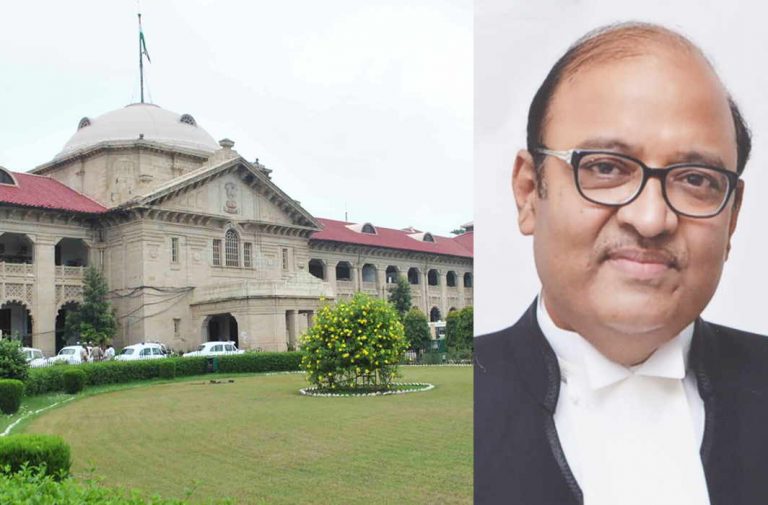
Above: (L-R) Allahabad High Court; chief justice Dilip Babasaheb Bhosale
In a significant move, the Court has ordered the installation of cameras to record proceedings in district courts. It is also implementing the e-Courts project
In an effort to provide transparency and efficiency, the Chief Justice of the Allahabad High Court, Dilip Babasaheb Bhosale, has directed two court rooms in each district falling under its jurisdiction to install cameras to record proceedings. The High Court has also stepped up the implementation of Phase II of the e-Courts project which will enable complete digitalisation soon.
As for recording of court proceedings on camera, the universally accepted view is that it will check corruption and ensure that judges are punctual. The chief justice has also amended the rules for district judges and asked them to be in court at 10 am and not turn up late on the pretext of being caught up with administrative work. This has improved the efficiency of the courts.
Last month, a Supreme Court bench of Justices Adarsh Kumar Goel and UU Lalit had directed the installation of CCTV cameras in trial courts and tribunals across the country to record proceedings. The apex court bench had ordered the 24 high courts in the country to draw up modalities that would facilitate such recordings and the Union ministry of information and technology and the department of justice to draw up technical specifications and pricing of the CCTV cameras within a month’s time.
The Supreme Court had observed that the installation of CCTV cameras would be useful in achieving the objective of having a transparent judicial system. It noted that “we are a court of records. Every word should be recorded”. It also underlined that recording of proceedings can only take place with full authorisation of the high court concerned.
Implementation of Phase II of the e-Courts project is getting a significant boost in the Allahabad High Court with provisions being made for new computer hardware and Local Area Network (LAN) for district and outlying courts. Desktops will soon be installed in district court rooms along with laser network printers.
The UP government, on the persuasion of the Allahabad High Court, has allotted funds to facilitate connectivity of subordinate courts to the high court through the Virtual Private Network over Broad Band (VPNoBB) provided by BSNL. This is a secured and cost-effective networking facility which is an add-on service on the broadband.
Due to regular monitoring by the high court, uploading and upgradation of data on the National Judicial Data Grid (NJDG) has made remarkable progress. A total of 6,97,389 orders and judgments have so far been uploaded on this server. Scanning and digitisation of case records of district courts has also been approved by the high court.
District court websites have been designed in a way that a litigant can monitor the daily progress of his or her case by merely clicking on the map of Uttar Pradesh and then the concerned district court. This e-access makes it easier for litigants seeking information.
Video conferencing (VC) facility between jails and district courts is being provided with funding from the state government. So far, the VC facility is functional in 67 districts and 67 jails in Uttar Pradesh. Work is in progress in the six remaining districts and three jails.
The Allahabad High Court is indeed taking significant strides in its march towards transparency and digitalisation of the judiciary.
—India Legal Bureau

